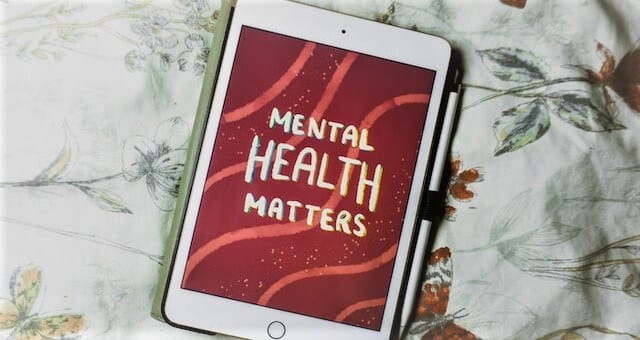Overcoming Adversities: The Science Behind Resilience
Life is unpredictable, and challenges are inevitable. Let´s have an honest discussion about how to overcome adversities.
No matter how much we try to control our lives, me, you, we all face some hardship at some point in time.
Any of us has his/her story : adversities can show different faces from health issues or financial problems to relationship breakdowns and many more.
However, always bear in mind that what sets us apart is how we respond to these challenges.
| “What are you gonna do?” |
Resilience is the ability to bounce back and recover from difficult situations.
It is one of the keys to overcoming adversities and moving forward with strength and courage.

In this article, we will explore what adversities are, the science behind resilience, how to use it to overcome adversities, and how you can cultivate it.
What is Adversity?
Life is everything but smooth sailing, and it’s inevitable that we will face adversity at some point. And many of them are not always easy to deal with.
But overcoming adversities can reveal itself to be the true path to lead a successful life.
Overcoming adversity is not just about getting through a challenging situation. It’s rather learning from it while discovering yourself as a person. It’s about developing resilience and learning to regain energy and motivation to bounce back from setbacks.
Defining Adversity
Adversity refers to a difficult situation or event that challenges us mentally, physically, or emotionally. It can come in various forms and can be caused by external or internal factors. Adversity can be a one-time event, or it can even be an ongoing struggle.
Again, Adversities are a part of life, as we experience it in our times, that we all have to deal with at some point or another. It can be a difficult situation, a challenging task, a significant loss or just sliding into deep depression without a reasonable cause.
But, and here is the real value, the way we respond to adversity builds our character and shapes our future.
For the sake of structuring our discussion, we will try to classify adversities into different types, including:
Personal Adversities
Personal adversities refers to difficulties that we face in our personal lives, such as a loss of a loved one, health issues, or a relationship breakdown. Personal adversities can be challenging to deal with as it can impact our everyday life from a mental and emotional perspective.

Professional Adversities
Professional adversities refers to challenges that we face in our work lives, such as a job loss, a difficult boss, or a toxic work environment. Professional adversities can be stressful and can impact our career growth and development. we could even lose interest altogether in that job and have to start it all again from ground zero.
Financial Adversities
Financial adversities refers to difficulties that we face related to our finances, such as debt, job loss, or a financial crisis. Those kind of adversities can be challenging to overcome as it can impact our ability to provide for ourselves and our families, and thus infect also our self-image in the long run.
Social Adversities
Social adversities refers to difficulties that we face as a society, such as discrimination, poverty, or injustice. Social adversities can be challenging to overcome as many times they would require some collective effort and a systemic change.
Unfortunately we are not living years of compassion and sharing, since the recent economic crisis, the Covid Pandemia and the resulting uncertainty have beaten even the most positive cultures down.

For this reason it is difficult to imagine (and then realize) a collective effort to move our humanity towards a renewed and better concept of society…
…but excuse me I’m digressing. This will be maybe material for another day 🙂
How to Overcoming Adversities: Clarity First!
How to overcome adversities then? Overcoming adversities requires us to have a clear understanding of what they are and how they affect us. But understanding adversities is really the first step towards overcoming them.
I do want this article to be useful. Not everybody is born with the weapons or the experience for successful “self-help”.
Please allow me to share some key things to keep in mind when dealing with adversities :
Accept the Situation
The first step in overcoming adversities is to accept the situation for what it is.
But don’t get me wrong : acceptance doesn’t mean giving up or resigning ourselves to the situation. It means acknowledging that this very situation exists, center yourself on it, managing your emotions and then dealing proactively with it to find a viable solution as soon as possible.
| Remember : “The only way out is through” |
Focus on What You Can Control

When dealing with adversity, do yourself a big favor and focus on what you can control.
This is easier said than done, I know. But the reality is that we cannot control external factors, and crying and smashing your head on that wall will not help for sure.
So on the other hand, we can cultivate our skills of controlling our response to them.
And as we discussed in a previous article, since our brain is only capable to focus on a single thing at a time, by focusing on what we can control (follow the link please), we can move far quickly toward the solutions, reducing the distractions coming from anxiety and fear.
Seek Support
Dealing with adversities can be really challenging, and it would be essential to seek support when needed.
Support can come in different forms, such as family, friends, a therapist, or a support group. Seeking support can help us feel less alone and provide us with the strength to overcome adversity.

Now just think of the last time you had the chance to share something that was worrying you. You discussed that concern with somebody you care about. The very act of speaking it out (your brain is listening and reflecting at the same time) made you feel relieved, just like that issue wasn’t that much of a disaster after all, isn´it?
Learn from the Experience
An adversity can be the ultimate teacher if we are open to learning from the experience. By reflecting on the situation and what we have learned, we can gain valuable insights and use them to grow and develop as individuals.
| Like a client of mine told me years ago : “Remember maxx, “Experience” is nothing but the sum of all the times life fooled you!”. enough said! 😃 |
You can learn a whole lot about how to overcome adversities just by Self-Discovery and Awareness.
Develop Resilience
As said before, resilience is the ability to bounce back from setbacks and difficult situations. It’s an essential skill to have when dealing with adversity.
But how do we build and improve our resilience, cultivate a growth mindset, learn to be adaptable, and practice self-care?
Read on my friend!

The Importance of Resilience
What is Resilience?
Resilience is the ability to adapt and recover from adversity, trauma, or stress. It is the capacity to withstand and bounce back from difficult situations.
But hey, resilience is not something we are born with; it is a skill that can be learned and has to be developed. Resilient people are those who are able to face challenges with a positive attitude, take action to overcome obstacles, can cope effectively with stress… and have smartly built a strong support system around them to cheer and nurture them from time to time.
The Role of Resilience
Resilience is huge, because it helps you overcome adversities and thus stay on track and to achieve your goals. Coupled with other fundamental life-skills, It is a very helpful tool to stay focused on what is important and to keep moving forward despite obstacles.
Resilience is also associated with better physical and mental health, improved relationships, and greater life satisfaction.
The Science Behind Resilience

Like I said before, resilience is not a fixed trait, but rather a skill to develop over time.
Researchers have identified several factors that contribute to resilience, and they include social support, positive self-talk, and problem-solving skills.
Additionally, resilience is associated with changes in the brain, including increased activity in areas associated with emotion regulation and attention.
In other words, developing resilience won’t just gift you a positive attitude, but also a healthy and reacting brain.
Since the brain is a complex organ that is responsible for regulating our emotions, thoughts, and behaviors, resilience is linked to the brain’s ability to adapt and rewire itself.
Studies have shown that the brain can change and grow in response to experiences. As shown in this article by verywellmind.com, this ability to change is known as “Neuroplasticity“.
Factors that Contribute to Resilience
Resilience is a pretty complex trait that is influenced by a large number of factors.
Let me enumerate a few :
1. Social Support
One common denominator found in different studies for building strong natural resilience is having a rooted, stable support system.
People who have a network of supportive friends and family members are normally far better able to cope with adversities.
Social support provides emotional comfort, practical help (you speak out your worries and receive prompt insights from other points of view), and a sense of belonging.
2. Positive Attitude
Having a positive attitude is an evergreen help to face adversities with resilience.

Optimism helps you focus on the positive aspects of a situation and find solutions. It is like a muscle that, once trained and kept in shape, helps you maintain your cool even in very demanding situations.
An optimistic person stay relaxed, motivated and thus is in the best position to “read between the lines” of every adversity.This is a time tested approach to find rational and reasonable way-outs to pretty much any issue.
3. Problem-Solving Skills
People who develop good problem-solving skills are better equipped to face adversities. This is self explanatory, isn’t it?
Problem-solving skills involve the ability to identify the origin of problems and not only the symptoms, analyze them by chunking them into pieces, and come up with effective, doable solutions.
4. Emotional Regulation
Emotional regulation is the ability to manage your emotions in a healthy way.
This is a wonderful skill to cultivate, believe me. People who are able to regulate their emotions are less likely to be overwhelmed by stress and more likely to be resilient.
Not only : those are the persons who get along easily with anybody, and for this reason naturally build an incredible social structure of “enthusiast supporters”!
Enough to give it a go? 🙂
5. Cognitive Flexibility
Cognitive flexibility is the ability to adapt to changing situations and think creatively. People who are cognitively flexible are better able to adjust their thinking and behavior to meet the demands of a new situation.
Cognitive flexibility is the ability to change your thinking and adapt to new situations quickly and creatively. It is an essential skill that boosts your problem-solving skills, and your capacity to cope with stress effectively.
That is to say that people who are cognitively flexible are better able to adjust their thinking and behavior to meet the demands of a new situation.
This skill is particularly important in today’s fast-paced world, where we encounter new challenges and opportunities every day. People with cognitive flexibility can more easily shift their attention, adjust their behavior, and come up with creative solutions to complex problems.
And fortunately, cognitive flexibility is also a not fixed trait but can and should be developed and improved with practice.
Tips for Building Resilience
1. Cultivate a Support System
Building a support system is crucial for building resilience. Reach out to family and friends for emotional support, and consider joining support groups.
2. Develop a Positive Attitude
Developing a positive attitude can help you face adversities with resilience. I encourage you to focus on the positive aspects of a situation… and, why not? Try to maintain a sense of humor! 😀

3. Practice Mindfulness
Mindfulness is the practice of being present and fully engaged in the moment. It can help you manage stress and build resilience.
This is a really interesting and profound subject, follow the link to find out more!
4. Take Care of Your Physical Health
Taking care of your physical health is also a no-brainer for building resilience. You don’t have to become a professional powerlifter, but at least try to exercise regularly.
Also plan and eat a healthy diet, get enough sleep, and avoid unhealthy coping mechanisms such as alcohol or compulsive online gaming!!
5. Practice Self-Care
Self-care is essential for building resilience. You are the center of your Universe. Period.
Take time to do activities that bring you joy and relaxation, nurture your mind reading a good book, spend time around with positive friends, taking a warm bath, or even only going for a walk.
Like Exercising, this should be a firm point in your everyday life too.

FAQs
Q1. Why is it essential to overcome adversity?
Overcoming adversity is essential because the real value is in the journey and not only the result.
It helps us grow and develop as individuals as much as develop resilience, which is an essential skill to have when dealing with difficult situations in the future.
Q2. What are some common types of personal adversities?
Some common types of personal adversities include grief, health issues, relationship breakdown, financial hardship and addiction.
Q3. How to overcome financial adversities?
You can overcome financial adversity by planning in advance ( the practical meaning of the old “save for a rainy day”….).
Create a budget and stick to it, seek financial advice or at least teach yourself financials through the Internet, look for additional sources of income, and monitor your expenses avoiding the unnecessary ones.
Q4. What are some common types of social adversity?
Some common types of social adversity include discrimination, poverty, inequality, and injustice.
Q5. How can I make a difference in addressing social adversity?
You can make a difference by getting involved in social activism, educating yourself and your family on the issue, donating what you can to organizations that work towards solving the problem, and speaking out against injustice.
Q6. Can resilience be developed?
Of course! Resilience is a skill that can and has to be developed with practice and effort.
You develop resilience by cultivating a growth mindset, seeking support, learning from the experience and practicing self-care
Q7. Is resilience the same as toughness?
Not really: toughness implies the ability to endure pain without showing weakness, whereas resilience is the ability to adapt and recover from adversity.
in this instance, resilience is more of a proactive attitude whereas toughness is more on the passive side.
Q8. How do you measure resilience?
Resilience can be measured using various scientific tools such as the Resilience Scale, the Connor-Davidson Resilience Scale, and the Brief Resilience Scale.
But they are just a conventional way to measure something more profound than a number. Experience the effects of resilience on your life instead.
Q8. What are some common misconceptions about resilience?
Some common misconceptions about resilience are that it is a inner trait that people are born with, that resilient people never feel stress or sadness, and that resilience means bouncing back to the same level of functioning as before : it can be, but it doesn’t have to.
Q9. Can therapy help build resilience?
Yes, therapy can provide the path, the tools to help people develop resilience.
For instance, solid coping strategies, problem-solving skills, and emotional support.
Q10. How can you help someone build resilience?
You can help someone build resilience by being a supportive listener, providing emotional comfort and practical help, and encouraging them to practice self-care and seek professional help if needed.
But even better than that, why not show the way through example? This could be of immense value for your children for instance.
So start building your resilience today!
Conclusion
Here we wrap up our discussion in about how to overcome adversities through resilience.
Adversity is an inevitable part of life, but it’s not something that we have to face alone. If we do our part by understanding adversities and developing resilience, we are well on our way to overcome difficult situations and become stronger, wiser individuals.
How to overcome adversities in our human world then? Seeking support, learning from the experience, and focusing on what we can control are the true weapons in overcoming rough moments.
Bear this in mind: adversities are not a sign of weakness. They are a path to strength instead. By facing adversity head-on, we can grow and develop into the best version of ourselves.
Adversities are a natural part of life, and resilience can help us overcome them. Resilience is the ability to adapt and recover from adversity, trauma, or stress. It is a skill that can be learned and developed through practice and effort.
Resilience is influenced by various factors such as social support, positive attitude, problem-solving skills, emotional regulation, and cognitive flexibility.
Building resilience requires cultivating a support system, developing a positive attitude, practicing mindfulness, taking care of physical health, developing problem-solving skills while practicing self-care.
Remember that resilience is not about bouncing back to the same level of functioning as before, but about adapting and growing from the experience.
So, let’s embrace our adversities and build our resilience to face life’s challenges with strength and courage.

We really have no other choice, and yet this is the best one you can do to “express the best version of yourself”…in the authentic wannabethebest.me fashion!! 👍
Have a wonderful day!










